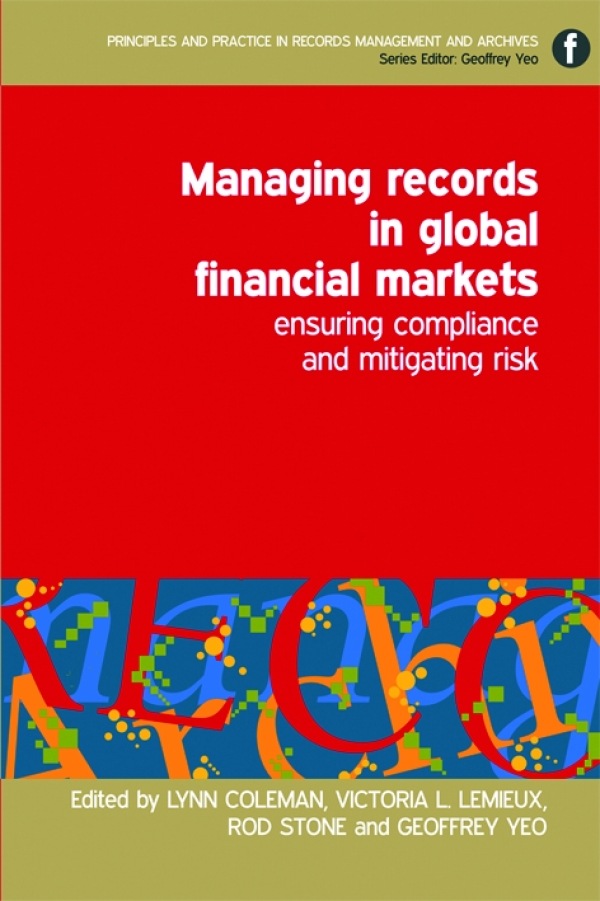Book contents
- Frontmatter
- Contents
- Introduction to the series
- Contributors
- Introduction
- List of abbreviations
- 1 Global financial markets
- Part 1 Regulatory and legal compliance
- 2 Conflicts of laws in multiple jurisdictions
- 3 Impact of the extrajurisdictional reach of the USA
- 4 Moves towards a common regulatory framework for financial services in the European Union
- 5 Data exchange and confidentiality: an Asia Pacific perspective
- 6 Information privacy in the USA
- Part 2 Balancing risk and return
- Part 3 Litigation-related issues
- Part 4 Record-keeping approaches
- Index
5 - Data exchange and confidentiality: an Asia Pacific perspective
from Part 1 - Regulatory and legal compliance
Published online by Cambridge University Press: 08 June 2018
- Frontmatter
- Contents
- Introduction to the series
- Contributors
- Introduction
- List of abbreviations
- 1 Global financial markets
- Part 1 Regulatory and legal compliance
- 2 Conflicts of laws in multiple jurisdictions
- 3 Impact of the extrajurisdictional reach of the USA
- 4 Moves towards a common regulatory framework for financial services in the European Union
- 5 Data exchange and confidentiality: an Asia Pacific perspective
- 6 Information privacy in the USA
- Part 2 Balancing risk and return
- Part 3 Litigation-related issues
- Part 4 Record-keeping approaches
- Index
Summary
Introduction
As financial institutions continue to grow in geographic scale and complexity, the need for effective communication and management of information becomes ever more important. Access to accurate, current information is key to all financial services processes, including trading, research, client relationships, compliance and personnel management. All of these activities require the exchange of information by financial institutions with their market counter - parties, advisers, service providers, regulators and government authorities. They also require increasing sharing of information internally between the various lines of business, corporate functions and offices and branches of such financial institutions. For decades, financial services regulators have sought to impose mandatory control and oversight standards on financial institutions to ensure that this exchange of data works effectively and minimizes key market risks such as money laundering and fraud. The difficult market conditions of 2008 and 2009 exposed several weaknesses in the existing oversight and control systems of financial institutions, and the failures that were discovered gave greater force and urgency to the calls for increased transparency and information sharing.
However, the resulting exponential increase in data f lows is not without its own risks. Barely a week goes by without a news story concerning a loss of records by a financial institution, multinational corporation or government department. These are not new risks – laws have regulated confidentiality and secrecy for centuries – but the scale of data exchange required in the conduct of cross-border financial services has greatly increased the risk of breach of these laws.
As a result, the financial services sector is subject to some of the most varied and complex laws and regulations in the context of data exchange and confidentiality. Financial institutions have to strike an appropriate balance between the disclosures required to manage their business, service their clients and satisfy their regulators, and the various restrictions on disclosure imposed under a variety of different generic and sector-specific laws and regulations. This chapter examines some of the disclosure restrictions that financial institutions face. The chapter focuses on jurisdictions in south, east and south-east Asia regions and also considers the position in Russia. For the purposes of the chapter, this is described as the Asia Pacific region.
- Type
- Chapter
- Information
- Managing Records in Global Financial MarketsEnsuring Compliance and Mitigating Risk, pp. 61 - 76Publisher: FacetPrint publication year: 2011



